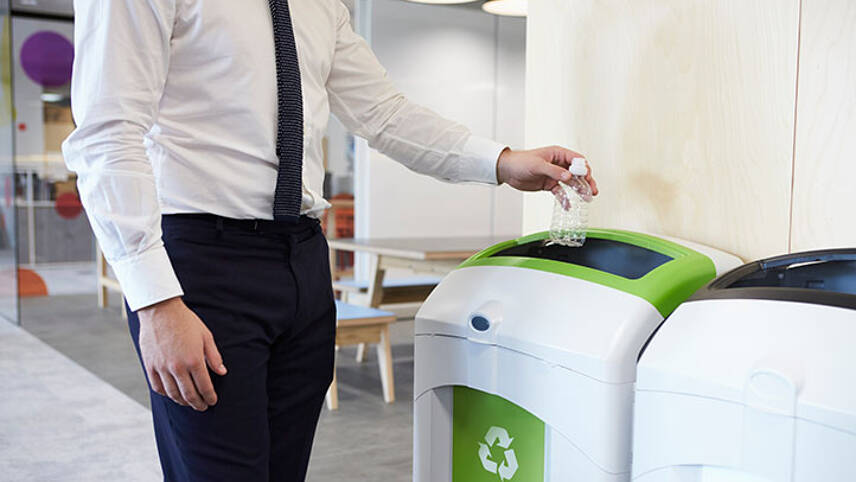Register for free and continue reading
Join our growing army of changemakers and get unlimited access to our premium content

Cutting dry mixed recycling costs is identified as a 'quick win' for offices
This is the headline finding from new research by Bywaters, a London-based recycling and resource management business. Bywaters assessed the typical waste-related costs incurred by a 32-storey office in the capital, and explored which interventions could bring costs down.
The analysis concluded that this kind of business can spend as much as £34,000 per year on waste management services, with the largest cost within this being disposing dry mixed recycling.
Reducing the production of dry mixed recyclable waste including paper, cardboard, plastic bottles and aluminium drinks cans – plus implementing stricter segregation practices to prevent contamination – was identified as a quick win for cutting costs.
Bywaters’ managing director John Glover Junior said: “These findings show clearly that implementing a circular business model isn’t just a win for the planet, but also a win for your business from a financial point of view.
“Moving away from a linear model to a circular model brings all sorts of savings on an annual basis, especially as you can literally reuse equipment that would otherwise be discarded or avoid waste that’s expensive to remove and take to landfill.”
Circularity Gap report
The analysis from Bywaters breaks down the global issue of the linear economy, reliant on wasteful ‘take-make-dispose’ models of consumption, for UK firms with offices.
On a global basis, some 100 billion tonnes of virgin raw materials have been extracted and consumed each year over the past five years. The proportion of these materials that are reused or effectively recycled has dropped from 9.1% in 2018 to 7.2% in 2023.
These figures are taken from Circle Economy’s latest annual ‘Circularity Gap’ report, published last week.
Circle Economy is urging policymakers to work with finance providers and businesses to change this trend, which is a key contributor to global emissions and nature degradation. It presented several recommendations for this new, “radical” collaboration, including:
- Embedding indicators beyond GDP in calculations of growth
- Governments setting time-bound, science-based targets to cap material use and waste generation
- Governments embedding retrofit and reuse in building standards
- Interventions to de-risk finance in circular economy initiatives
- Reforming subsidies currently flowing to wasteful business practices and the promotion of overconsumption
- Working with labour unions to realise the just transition opportunities of jobs in the circular economy
Related news: Business sustainability spending leads to better revenue outcomes, Corporate Knights finds


Please login or Register to leave a comment.